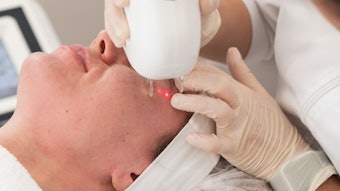
The European Academy of Dermatology and Venerology (EADV) Congress 2022 in Milan, Italy hosted Marijana Vičić, MD, PhD, postdoctoral researcher, assistant lecturer, and research associate at the University of Rijeka School of Medicine, Department of Dermatovenereology and a dermatologic fellow at the Clinical Hospital Center of Rijeka, Croatia, to discuss mental health related to psoriasis and challenging mental health cases, according to an article by Dermatology Times.
Connecting Mental Health to Psoriasis
The article discussed the psychosocial trauma that psoriasis can ensue, being that it can cause the onset or the first appearance of psoriasis, or worsen the disease.
Recent studies have show that psoriasis is a real system disease that can affect various organ systems, and cause psychiatric comorbidities. These conditions can include depression, anxiety, sleep disorders, suicidal thoughts and schizophrenia, per the article.
Related: Bringing Peace To Psoriasis
The article discussed the importance of dermatologists remembering that mental health is a key factor in the psoriasis severity assessment and should be screened carefully.
In the presentation, Vičić shared psoriasis patients cases that were linked to mental health distress. The psychological characteristics of psoriasis were reported to include: Type D (distressed personality) negative affectivity and social inhibition, early maladaptive schemes - emotional deprivation/inhibition, social isolation, vulnerability to harm, Alexithymia and lack of body awareness (body ignorance).
Studies have confirmed that psoriasis is often linked to psychiatric comorbidities including depression, psychosocial distress, anxiety, alexithymia, sleep disorder, alcohol abuse, schizophrenia and suicidality. According to the article, the most common comorbidity is depression, making up 30% of all psoriasis patients.
In her closing, Vičić stressed the importance of dermatologists being aware of the psychological factors in psoriasis, regular screenings for psychological comorbidities, improved listening and counseling skills for patients, references for mental health specialists and helping your patients find a support system.











